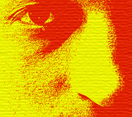A friend of mine, Richard Rogers, just published a book that I can't wait to read. He has done some really neat work based on the (relatively) new science of networks. From his announcement...
Does the information on the Web offer many alternative accounts of
reality, or does it subtly align with an official version? In
Information Politics on the Web, Richard Rogers identifies the
cultures, techniques, and devices that rank and recommend information
on the Web, analyzing not only the political content of Web sites but
the politics built into the Web's infrastructure. Addressing the larger
question of what the Web is for, Rogers argues that the Web is still
the best arena for unsettling the official and challenging the
familiar.
Rogers describes the politics at work on the Web as either back-end --
the politics of search engine technology -- or front-end -- the
diversity, inclusivity, and relative prominence of sites publicly
accessible on the Web. To analyze this, he developed four "political
instruments," or software tools that gather information about the Web
by capturing dynamic linking practices, attention cycles for issues,
and changing political party commitments. On the basis of his findings
on how information politics works, Rogers argues that the Web should
be, and can be, a "collision space" for official and unofficial
accounts of reality. (One chapter, "The Viagra Files" offers an
entertaining analysis of official and unofficial claims for the health
benefits of Viagra.) The distinctiveness of the Web as a medium lies
partly in the peculiar practices that grant different statuses to
information sources. The tools developed by Rogers capture these
practices and contribute to the development of a new information
politics that takes into account and draws from the competition between
the official, the non-governmental, and the underground.
Endorsements
"A brilliant deciphering of informational politics. Rogers shows us how
the Web can be a site for both officialdom and its unsettling. He also
proposes a Web epistemology based on the ways in which Web dynamics can
function as embedded adjudication cultures, and thus assess the
trustworthiness of information sources."
--Saskia Sassen, University of Chicago, author of Globalization and Its
Discontents
"Rogers presents a profoundly different way of thinking about
information in cyberspace, one that supports the political efforts of
democratic activists and NGOs and takes seriously the epistemological
issues at the heart of networked communications. His approach is
light-years ahead of other research: Not only are the four political
instruments he has developed for analyzing the Web innovative, but the
set of theoretical assumptions underlying them breaks new ground. He
rejects the tired and banal focus on fandom, porn, and aliens that took
cyber-theory into a cultural and political wasteland. His Web is
instead a serious, dynamic site of political struggle."
--Jodi Dean, Hobart and William Smith Colleges, author of Publicity's
Secret: How Technoculture Capitalizes on Democracy
"If you have ever been horrified by the nonsense floating around on the
Web, or stunned by the hype of those who claim that e-politics will
soon replace real politics, then this book is for you. Finally, someone
investigates the Web's ability to express, replace, renew, and disrupt
the age-old tools of political expression. Richard Rogers's Web mapping
experiments form a great inquiry into the practices of political
science."
--Bruno Latour, Ecole des Mines, Paris
